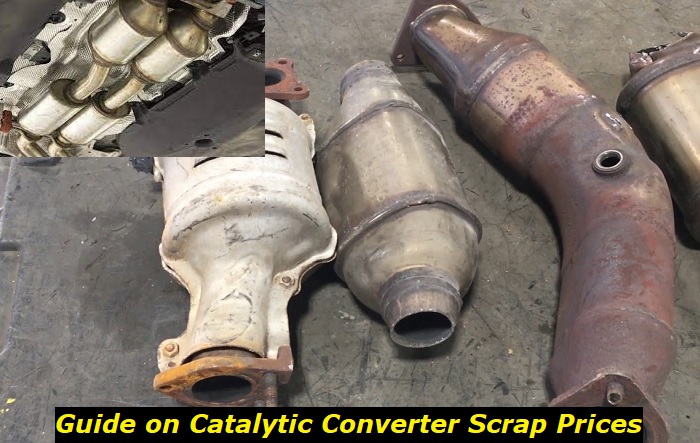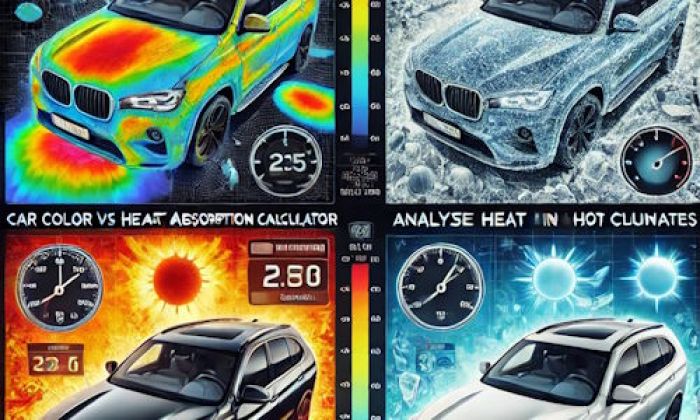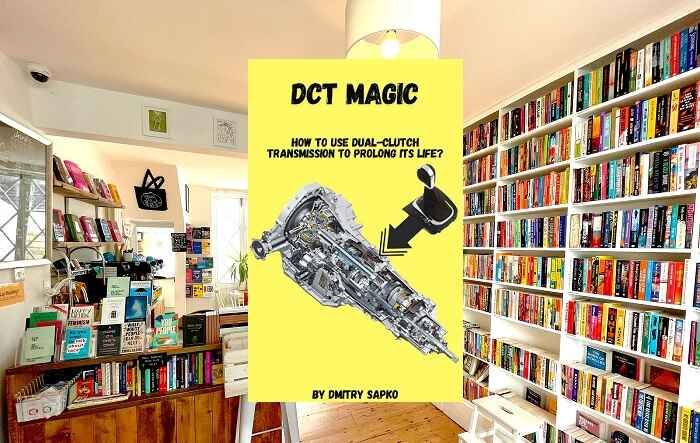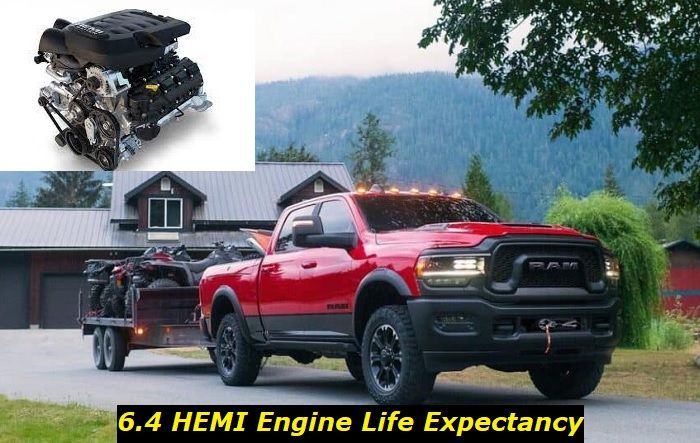We've written several articles about catalytic converter scrap prices and we liked your response and feedback. Also, many readers asked us if we could write more about how these prices are formed and why they are as they are currently. Although this sphere is changing all the time and we can't guarantee that the information in this article is true for years to come, we can give you some overall understanding of how old cat converter prices are formed.
Today, we'll tell you in general about scrap catalytic converter prices, how they are formed, and what they depend on. Also, we'll tell you how you can sell an old catalytic converter and investigate the price by yourself. This will help you avoid selling your old cat converter cheaper than it actually costs. And this will also help you form a professional opinion on how this sphere works.

So, here's what we are going to cover in this article:
- What forms the price of an old catalytic converter?
- What are the average prices for scrap cat converters in the US?
- Who buys old and broken catalytic converters?
- How can you find the buyer for your converter that will pay you more than others?
- Why is it important to recycle all broken cat converters?
- Should you keep your old converter? Will it grow in price in the future?
Let's get started!
What does the price of your old catalytic converter depend on?
A person who doesn't know anything about catalytic converters may not even dream of selling this rusty piece of metal for good money. It looks just like a broken silencer that wouldn't cost even ten bucks. But catalytic converters are different - they have precious metals inside them. Different models and types of cat converters may have different amounts of metal inside.
The metal is a thin film on the filtering element that is made of ceramics. This ceramic element is not eternal and it can burn or just ruin after some time. So, if your catalytic converter is empty of heavily damaged, chances are it doesn't cost a lot now.
Here's what determines the price of the old catalytic converter:
- its type and size - the larger the cat, the more money it may cost, but this isn't always working;
- the serial number on the converter - this number will define the certain type of the cat converter and its contents;
- the origin of the cat - it may be a solid OEM converter that usually costs a lot or an aftermarket part that deserves its place in the trash;
- the brand - some car manufacturers use cheaper converters while others prefer the parts with more precious metals inside;
- the condition of your converter - it may be rusty and look bad but still cost a lot, though a broken converter with nothing inside it will not cost much;
- the current price of precious metals - they fluctuate and usually grow, but sometimes sharp price drops are possible;
- the buyer of your catalytic converter - different companies may offer different prices for the converter that you have for sale.
So, to say for sure that your cat converter will cost a certain amount of money is just impossible. And when you see a certain price estimation on some low-reputation website, never take it for granted. Before you figure out a certain price, you will have to go through several steps and only after some research on the internet, you may get a proper price prediction.
The average catalytic converter scrap price is now $150 to $300 but we know cat converters that may cost up to $1000 and even more depending on their condition. Usually, those are old converters from big pickup trucks or SUVs that were made when platinum, palladium, and rhodium weren't as expensive as now.
What kinds of metals will you find in a catalytic converter?
Each OEM catalytic converter contains a certain amount of platinum, palladium, and sometimes rhodium. These metals form alloys that cover the ceramic honeycomb in the classic converter.
Today, platinum costs about $35 per gram, palladium is priced at $53 per gram and rhodium costs $260 per gram. These prices need proper research because they change every day and won't be true a week after the article is posted, so please check this in some financial websites that track current prices for precious metals. For example. in 2021, 1 gram of rhodium cost almost $1,000!
An average mid-size catalytic converter contains up to 7 grams of platinum, 4-6 grams of palladium, and up to 2 grams of rhodium. Even though rhodium prices are now not at their maximum levels, the average old converter may contain precious metals for almost $1,000 and this is a lot!
But this doesn't mean that you can sell the old converter for this money. Let's see some examples and you will understand why.
What are the average prices for old catalytic converters in the US?
We've been analyzing catalytic converter prices in the US for a long time now and we know a couple of secrets that we are going to tell you later in this article. But first, let's see how much these old parts may cost, with some examples.
Here are the most popular queries on our blog with our estimated prices:
- Dodge RAM- $300
- Ford Mustang- $200
- Jeep Grand Cherokee- $200
- Ford F250- $250
- Ford Ranger- $200
- Honda Accord- $120
- Chevy Silverado- $220
Also, we've analyzed average prices for other models such as Nissan Altima, Honda Odyssey, Ford Focus, Ford Escape, Dodge Dakota, and dozens of other vehicles. You may easily find the needed information just by googling the certain model - we are pretty sure one of our articles will be there on the first page in the search results.
So, if you are interested in a certain model, we recommend you read the article about that model. But if you want to learn more about how the catalytic converter market work in the US, just keep reading - we've prepared a lot of information that you won't find in open sources.
When is it time to sell your old catalytic converter?
You will want to sell a converter in two cases:
- you don't need it anymore because the car is gone;
- your converter is broken and can't go through the fog test.
In both cases, you just don't need this piece of scrap metal and may want to get some money for it.
Most catalytic converters today live up to 120 - 150 thousand miles. Also, the average lifespan is about 12 years. After that, converters may get holes in their bodies because of corrosion, their ceramic elements may get clogged or damaged. Usually, after this mileage, they will just not work as efficiently as needed.
So, you will need another converter to pass the fog test while the old catalytic converter appears in your garage with no purpose for it but to lie on one of the shelves. It's always better to sell it and get some money!
Who buys catalytic converters in the US?
We've spoken to several car owners and we figured out that no one actually knows how this old-catalytic-converter business works in the US. Almost all people think that scrapyards are the only legal buyers of cat converters, so they offer good prices and you shouldn't search for anything better.
But it's not true! Scrapyards are just only one type of cat converter buyers and we don't recommend them to you unless you have aftermarket converters that cost $15 to $30, in most cases.
Here are the possible buyers of old catalytic converters:
- Other owners of the same vehicle model. They will want working converters for cheap replacement and passing the fog test. Broken cats can't be sold this way.
- Private buyers. They say they are private buyers, but actually, these are small businessmen who will resell your catalytic converter at a higher price. They are convenient because they just come to you and get that converter and pay you money instantly.
- Scrapyards. You may think these companies recycle old catalytic converters. But they don't. Just like private resellers, they will seek some profit in reselling your old catalytic converters at a higher price.
- eBay buyers. You may advertise your old catalytic converter on eBay which may give you quite a good profit but this will take some time and effort on your side, so the method is not for everyone.
- Recycling companies. These are the businesses that actually recycle catalytic converters and are usually the final destination for all cat converters that can't be used in cars anymore.
- Exhaust shops. Some of them will resell the converters, others will try to clean and repair them to let them work another year or two.
You may now choose between these companies and buyers. But we will give you one hint: pay attention to recycling companies or eBay. These two methods usually give more money than others. Also, recycling companies are much more convenient because they don't require a lot of effort on your side.
Just follow the simple guideline we are going to provide you with in the following part of the article.
How to sell your old catalytic converter at the best price?
So, now is the key part of the article. We don't know how the market will move in the next months and years. But we still want every reader to get what they want from this article. So, we'll make sure that everyone can get the best price offer for their catalytic converters.
Here's how you can do that:
- take the catalytic converter off your vehicle - better ask a professional to do that;
- clean the body of the cat converter a little to find the serial number;
- take pictures of the catalytic converter that would show its condition and also the serial number;
- find websites that represent recycling companies that buy catalytic converters scrap;
- find an application form or e-mail address on those websites;
- apply to as many recycling companies as you can find online;
- wait till they offer you some prices for your converter and choose the best one.
This is the competition-based method to get the best price offer for your catalytic converter. It offers you much more than just understanding the average price. If you get a good offer, you can immediately sell your cat converter following the instructions these companies will give you. They will even gladly pay for shipping, in most cases.
Alternatively, you can advertise your catalytic converter on eBay. This method allows you to set the price for your old converter. But this method has one disadvantage - you may wait for your converter to be sold for a very long time.
Now, you know how you can relatively quickly check the current price for nearly any catalytic converter. Using the pictures, the serial number, and some other features, recycling companies will quickly send their price offers to you.
How should you prepare the old cat converter for sale?
The worst part is to take the converter off the car. First, you need to locate it. Converters that are located under your vehicle, near the muffler, are not that hard to take off. You may cut it off by cutting a piece of the exhaust pipe or unscrewing the bolts holding the entire section of the exhaust system with your catalytic converter.
But some catalytic converters and pre-cats are located closer to the engine or right inside the exhaust manifold. Taking them off will be a hard business and we always recommend letting someone experienced do this job. You will anyway need some help from the exhaust shop to install the new converter, so let them take your old catalytic converter off the vehicle.
After that, the preparation depends on how you are going to sell the converter. In most cases, recycling companies will send you a certain guideline on how to prepare the converter for shipping so that delivery would cost less money.
If you are selling the converter on eBay, make sure you are sending as light and small part of the converter as possible. But the converter should remain untouched. A damaged body of the converter will immediately make it much cheaper.
Why should all old catalytic converters be recycled?
Our planet just can't hold all that trash that we produce. The converter's task is to filter and catalyze some harmful gases when you are driving your vehicle. But if you just throw this thing away, the environment will get probably more harm than if there was no converter at all in your car.
Proper recycling is important. Companies don't just take platinum and palladium, they completely recycle all other materials like ceramic and cheap iron and don't let these materials end up in the environment.
If the ceramic element from your converter gets directly to nature, it will contaminate it for about 100 years. Think about it the next time you are about to throw something like that away. And why should you throw it away if it can actually bring you some money?
Can you recycle catalytic converters by yourself?
To recycle a catalytic converter properly, you will need to have several important things:
- a registered business that can officially buy scrap metals and precious metals for recycling;
- a license, according to current demands in your state;
- a set of expensive equipment for melting the converter and gathering the needed materials;
- supply of hundreds of catalytic converters a day to gather a decent amount of every single metal;
- contract with industrial companies that can legally buy precious metals from you.
If you have all of these, you may freely recycle a catalytic converter by yourself. Of course, none of us actually has this, so better just sell your converter to professionals. Even if you somehow manage to get those precious metals out of your catalytic converter, you will not be able to sell it. No one is going to buy 2 grams of rhodium and 7 grams of platinum from a private person.
Should you keep your catalytic converter till it becomes more expensive?
Some of our readers ask if they should keep their catalytic converters. They look at prices in 2021 and think that now it's the worst time to sell your converter because rhodium is cheap and buyers offer much worse prices. But the thing is - you don't know how precious metals will grow in price and if they will at all. You can't predict the price of rhodium in the next year.
Also, your catalytic converter will deteriorate after some time. It will develop some rust and will obviously become less expensive. So, we recommend selling your catalytic converter once you understand you will never need it anymore. Just find someone who will offer the best price for your old converter.
Final thoughts
We believe we answered all questions that can bother you when you are having an old catalytic converter in your hands. But if you still have some questions, please let us know in the comments below.
Just to make it clear - we don't buy and don't sell catalytic converters. We also can't predict the price for your cat. Please contact one or several recycling companies for this information.
About the authors
The CarAraC research team is composed of seasoned auto mechanics and automotive industry professionals, including individuals with advanced degrees and certifications in their field. Our team members boast prestigious credentials, reflecting their extensive knowledge and skills. These qualifications include: IMI: Institute of the Motor Industry, ASE-Certified Master Automobile Technicians; Coventry University, Graduate of MA in Automotive Journalism; Politecnico di Torino, Italy, MS Automotive Engineering; Ss. Cyril and Methodius University in Skopje, Mechanical University in Skopje; TOC Automotive College; DHA Suffa University, Department of Mechanical Engineering






Add comment